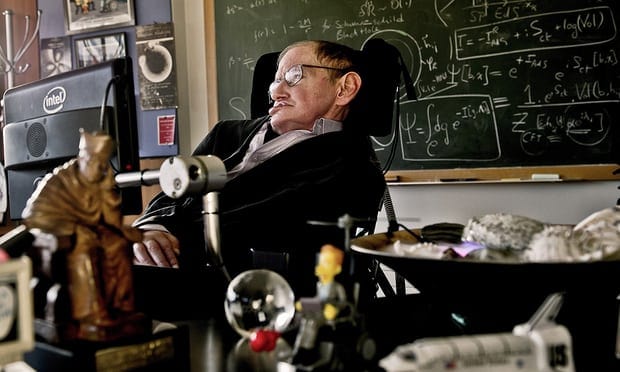CAMBRIDGE – The brightest star of modern cosmology, British physicist Stephen Hawking, who inspired millions of people in life, has died at the age of 76, his family said.
Author of several popular books, including A Brief History of Time: From the Big Bang to Black Holes, Hawking is also known for his work with black holes and relativity. It was his insights that gave modern shape to cosmology.
His family issued a statement in the early hours of Wednesday morning confirming his death at his home in Cambridge.
Hawking’s children, Lucy, Robert and Tim said in a statement: “We are deeply saddened that our beloved father passed away today.
“He was a great scientist and an extraordinary man whose work and legacy will live on for many years. His courage and persistence with his brilliance and humour inspired people across the world”.
“He once said, ‘It would not be much of a universe if it wasn’t home to the people you love.’ We will miss him for ever.”
The world-renowned theoretical physicist and cosmologist was diagnosed with motor neurone disease in 1963 when he was the 21-year-old student at Cambridge University.
According to doctors, Hawking will die at the age of 23 due to this rare disease, but he survived for more than fifty years as the disease progressed more slowly than usual.
Hawking was born on January 8, 1942 ― the 300th anniversary of Galileo’s death ― in Oxford, England. His father named Frank, was a physician specializing in tropical disease, and Isobel, a medical secretary.
Hawking first shot to fame when his 1988 book ‘‘A Brief History of Time,’’ a simplified overview of the universe, hit the market. It sold more than 10 million copies globally.
His subsequent insights shaped modern cosmology concepts about black holes and beginning of the universe.
https://twitter.com/NASA/status/973787392590172160
For 30 years, he held a mathematics post at the Cambridge University previously held by Sir Isaac Newton. Hawking retired from that position in 2009 and then became the director of research at the university’s Centre for Theoretical Cosmology.
The deceased physicist bagged these unmatched achievements despite being nearly entirely paralysed. He was able to communicate with people through a voice synthesizer only by twitching his right cheek in his last days.
His last book, The Grand Design, was published in 2010.














